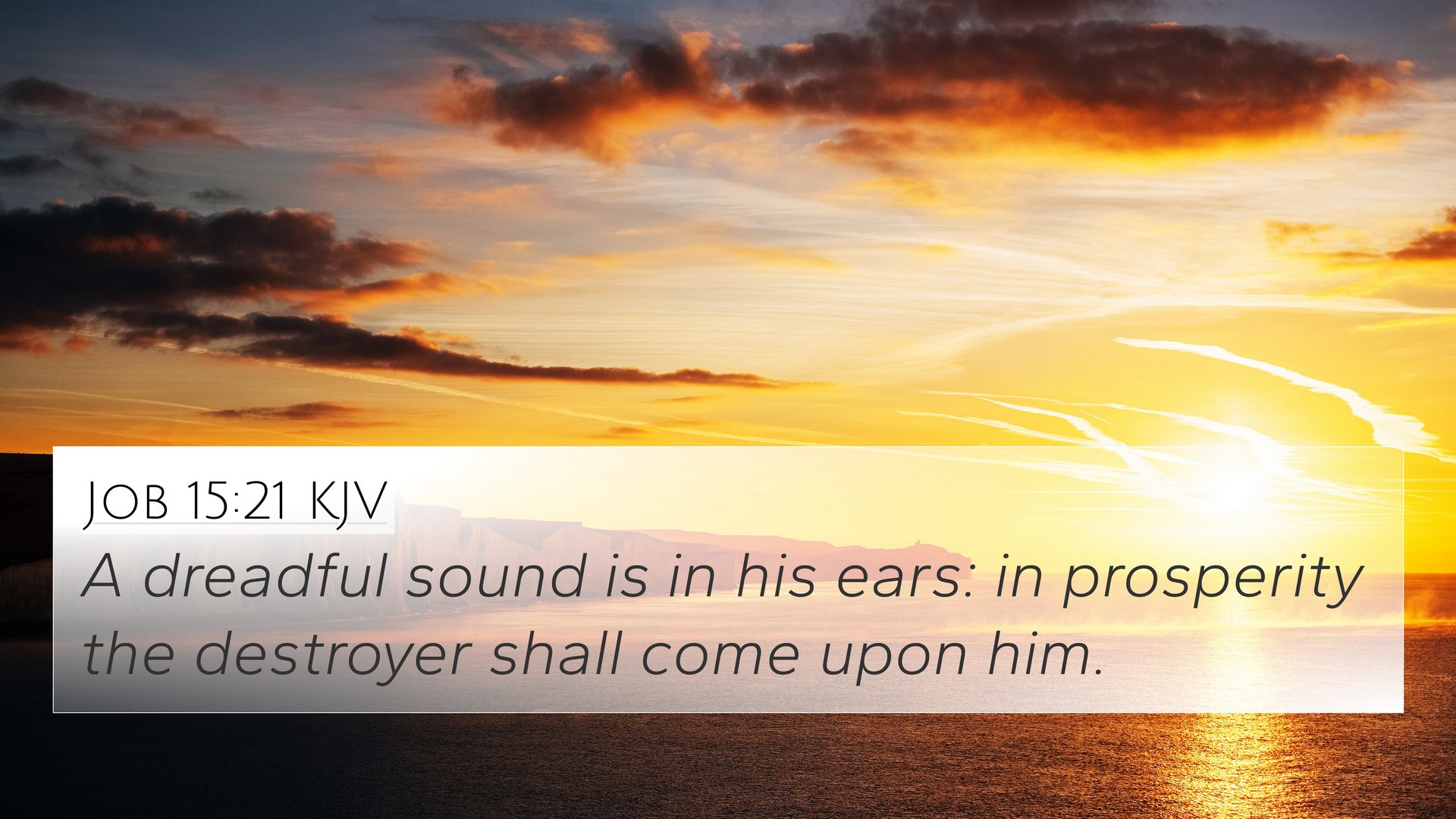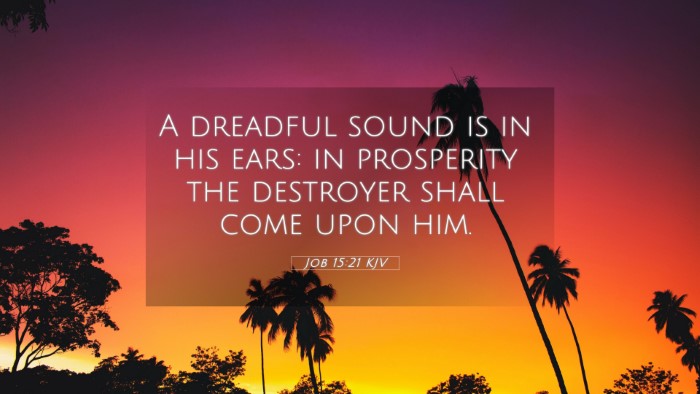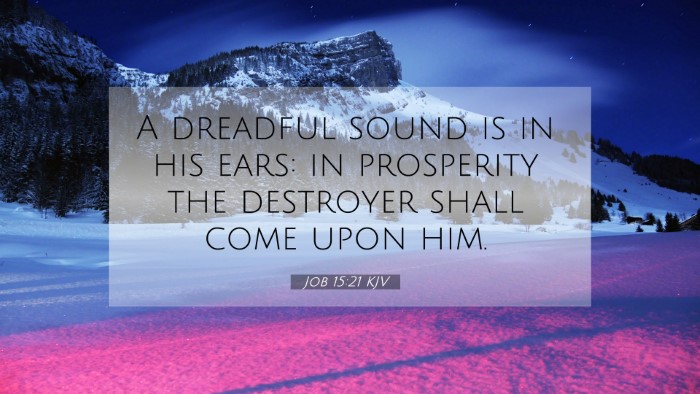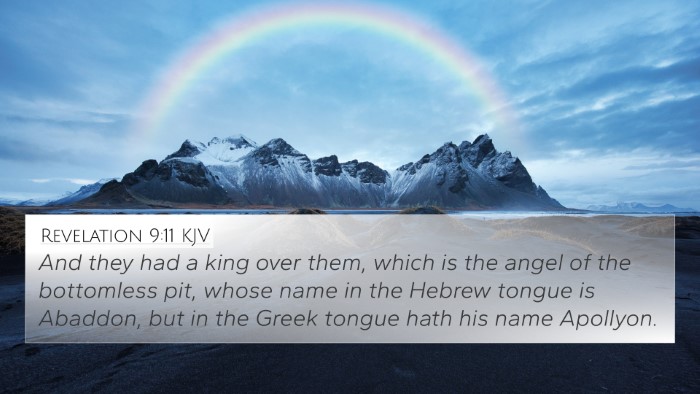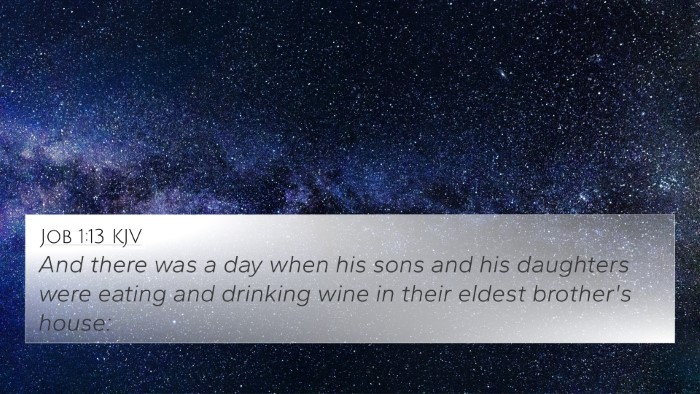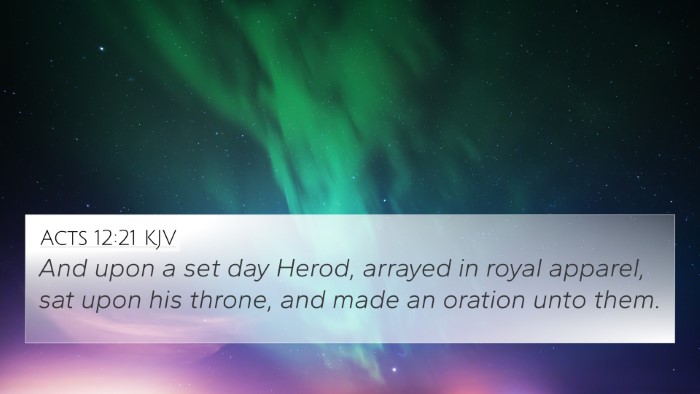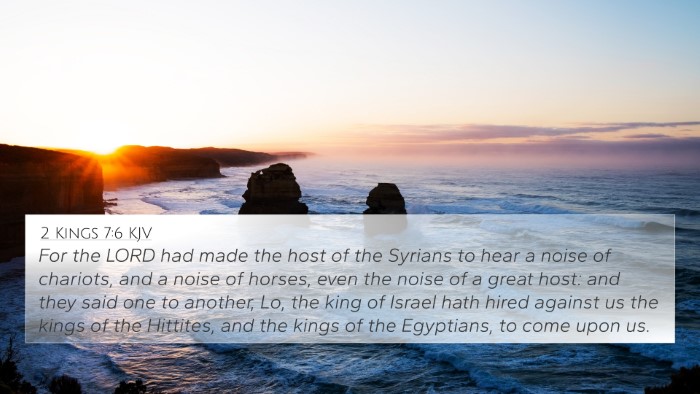Understanding Job 15:21
Job 15:21 states: "A dreadful sound is in his ears: in prosperity the destroyer shall come upon him."
This verse is part of Eliphaz the Temanite's speech. Through this verse, Eliphaz articulates a perspective on the experience of the wicked, emphasizing the psychological unrest and fear that accompany a life lived in opposition to God.
Combined Insights from Public Domain Commentaries
The interpretations of this verse reveal themes of fear, divine judgment, and the consequences of sin. Insights from notable public domain commentaries provide depth:
-
Matthew Henry:
Henry observes that the wicked live in constant fear, which is a more profound torment than physical suffering. The "dreadful sound" symbolizes impending judgment, suggesting that the sinner's prosperity is fragile and can be overturned by divine retribution.
-
Albert Barnes:
Barnes interprets the "dreadful sound" as the ominous warning of God's impending judgment. He suggests that the confidences of the wicked are misleading, and in times of prosperity, they are often blind to the reality of judgment that awaits them. Barnes focuses on the idea that divine judgment does not spare those who appear secure in worldly success.
-
Adam Clarke:
Clarke elaborates on the psychological aspect of the "dreadful sound" representing an internal turmoil that plagues the guilty conscience. He notes that even amidst apparent success, a wicked person is haunted by the knowledge of their sin, indicating that the "destroyer" may symbolize disease or calamity that strikes suddenly.
Bible Verse Cross-References
To better understand Job 15:21, it’s beneficial to explore connections between this verse and other Scriptures that resonate with its themes:
- Job 18:14: “His confidence shall be rooted out of his tabernacle, and it shall bring him to the king of terrors.” - Illustrates the destruction of hope for the wicked.
- Psalm 73:18-19: “Surely thou didst set them in slippery places: thou castedst them down into destruction.” - Reflects the ultimate downfall of the wicked despite their temporary prosperity.
- Proverbs 1:26-27: “I also will laugh at your calamity; I will mock when your fear cometh.” - Speaks to divine judgment and the way it overtakes those who ignore wisdom.
- Isaiah 33:14: “The sinners in Zion are afraid; fearfulness hath surprised the hypocrites.” - Further emphasizes the terror that grips the wicked when facing judgment.
- Luke 12:19-20: “And I will say to my soul, Soul, thou hast much goods laid up for many years; take thine ease, eat, drink, and be merry. But God said unto him, Thou fool, this night thy soul shall be required of thee.” - Illustrates the suddenness of divine judgment against worldly ease.
- Romans 2:5-6: “But after thy hardness and impenitent heart treasurest up unto thyself wrath against the day of wrath and revelation of the righteous judgment of God.” - Highlights how unrepentant sinners accumulate judgment.
- Colossians 3:6: “For which things' sake the wrath of God cometh on the children of disobedience.” - Points to the certainty of judgment for disobedience.
Thematic Connections Between Bible Verses
Job 15:21 serves as a powerful reminder of the overarching biblical themes of sin, judgment, and the need for repentance. The themes outlined in this verse align with many other scriptures that caution against complacency in sin and call for a sincere relationship with God:
-
Fear of Judgment:
Verses throughout scripture remind believers that ongoing sin fosters fear rather than peace. Job 15:21 serves as a thematic parallel to Proverbs 1:26-27, emphasizing that divine discomfort will descend upon those who turn from righteousness.
-
Temporary Prosperity:
Many biblical texts, including Psalms and Proverbs, illustrate the fleeting nature of earthly wealth and success, reminding readers that true fulfillment comes from being aligned with God's will. The assurance of destruction for the wicked finds resonance in similar warnings scattered across the scriptures.
-
Inner Conflict and Guilt:
Job 15:21 reflects the torment of the wicked within their prosperity, echoing themes of guilt and internal strife explained in Psalms and in the messages from Christ regarding conscience and sin. This internal battle is highlighted in numerous passages, focusing on the need for reconciliation with God.
Tools for Bible Cross-Referencing
For those seeking to explore the connections between Bible verses further, various tools can enhance study:
- Bible Concordance: Useful for finding keywords and themes across different verses.
- Bible Cross-Reference Guide: Offers insight into related scriptures, enhancing understanding and study.
- Bible Reference Resources: Numerous resources can provide a deeper dive into thematic studies.
Finding Cross-References in the Bible
For effective Bible verse cross-referencing and to identify thematic connections:
- Utilize a Bible Concordance: This tool allows readers to find the meaning and usage of specific words, highlighting relevant verses.
- Engage in Cross-Reference Bible Study: Explore the links between different scriptures to gain a holistic understanding of biblical themes.
- Apply Bible Chain References: Follow a chain of verses that relate directly to a specific topic or theme to see Biblical harmony.
Conclusion
In conclusion, Job 15:21 encapsulates profound themes surrounding fear, judgment, and the consequences of sin, with cross-references that enhance the understanding of these concepts across the Bible. The fear that grips those living in rebellion against God emphasizes the importance of aligning one's life with biblical principles to avoid the turmoil that awaits the wicked.
